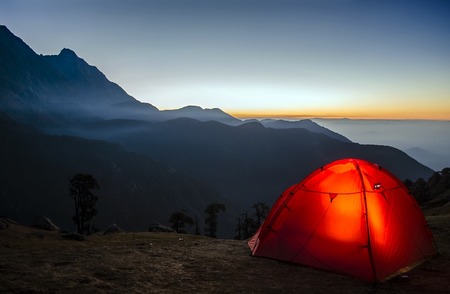Twitter is one of the most important information platforms on the world. Whether news or marketing, the influence that people, brands, and governments have on Twitter seems to be limitless.
That's why you need to be on Twitter and actually use Twitter to market your summer camp. So in the spirit of the platform itself, here are some quick, easy-to-read tips for Twitter marketing.
1. Pick a Perfect Twitter Handle.
Make sure your name is recognizable as your summer camp. If you want recognition (and potentially a blue check mark), then people need to know your Twitter handle is you.
If your handle is @PurpleCupcakes445, but you run a nature camp, you need to resolve your camp's identity crisis. And try to keep the handle simple.
2. Show Dynamic Primary Pictures.
These primary pictures include your profile picture and your header photo. Make sure these pictures are dynamic and show what your camp is about.
Action shots are great. Make sure they are high-quality and clearly show your unique propositions. Spend a little money on this if you have to.
3. Use Your Bio.
When someone clicks on your profile, you have a bio available for anyone to read. Don't neglect it.
Describe your camp in exciting terms. Say who you are, what you offer, and how people can find out more.
4. Join Hashtag Conversations.
On Twitter, you can see trending conversations that usually center on common hashtags. If you have something valuable to say, especially about topics related to your camp or fun diversions, then join in the fun and use the hashtag.
Don't try to hijack every hashtag though. If you put out a lame joke just to "join in," you might not gain a good reputation.
5. Post Pictures.
On Twitter, pictures mean more engagement. Tweets with images get more retweets, replies, and likes than those without.
Post pictures and create memes with action shots from your camp to drive engagement.
6. Use Video.
Videos can give walkthroughs of your summer camp and show off the fun events you hold.
In the past, video used to stutter or cause problems, particularly with mobile, but now faster network speeds such as LTE and 4G have become ubiquitous. Use this to your advantage.
7. Join Conversations About Your Summer Camp Topic.
On Twitter, you're not confined to discussing trending topics. You can search topics and find relevant tweets to reply to.
For example, if you have a STEM camp, you should search for topics about STEM and reply to popular ones. Maybe if you reply to Neil DeGrasse Tyson, you'll earn a retweet to the astrophysicist's 12.7 million followers!
8. Know When to Tweet.
Generally, the best time to tweet is Monday through Friday in the early afternoon. But you should always check your own metrics and find when you get the most engagement.
After some early testing, stick to a solid schedule. Tweets are only 140 characters, so this shouldn't be too hard!
9. Promote.
At the end of the day, it's about exposure. If you're new to Twitter, these tips will help, but you may need to put some money aside and pay to get noticed.
Consider putting aside some money to identify your exact market and promote your tweets directly to those people.
Â





 As another successful camp season comes to a close, take some time to reflect on the effectiveness of your marketing plan. What worked? What didn't work? How will you adjust and adapt next season? Evaluating your efforts and making changes for the upcoming year is the best way to stay competitive and continually increase enrollments.
As another successful camp season comes to a close, take some time to reflect on the effectiveness of your marketing plan. What worked? What didn't work? How will you adjust and adapt next season? Evaluating your efforts and making changes for the upcoming year is the best way to stay competitive and continually increase enrollments. Summer is here and the campers are on their way! You're busy making last-minute preparations, training staff members, and getting ready for a summer filled with memories. You can put your marketing plans aside until the fall, right?
Summer is here and the campers are on their way! You're busy making last-minute preparations, training staff members, and getting ready for a summer filled with memories. You can put your marketing plans aside until the fall, right?
 Training your camp staff is one of the most important things you do as a camp director. Start preparing for your training sessions now by establishing your goals and sharing them with your staff members.
Training your camp staff is one of the most important things you do as a camp director. Start preparing for your training sessions now by establishing your goals and sharing them with your staff members.